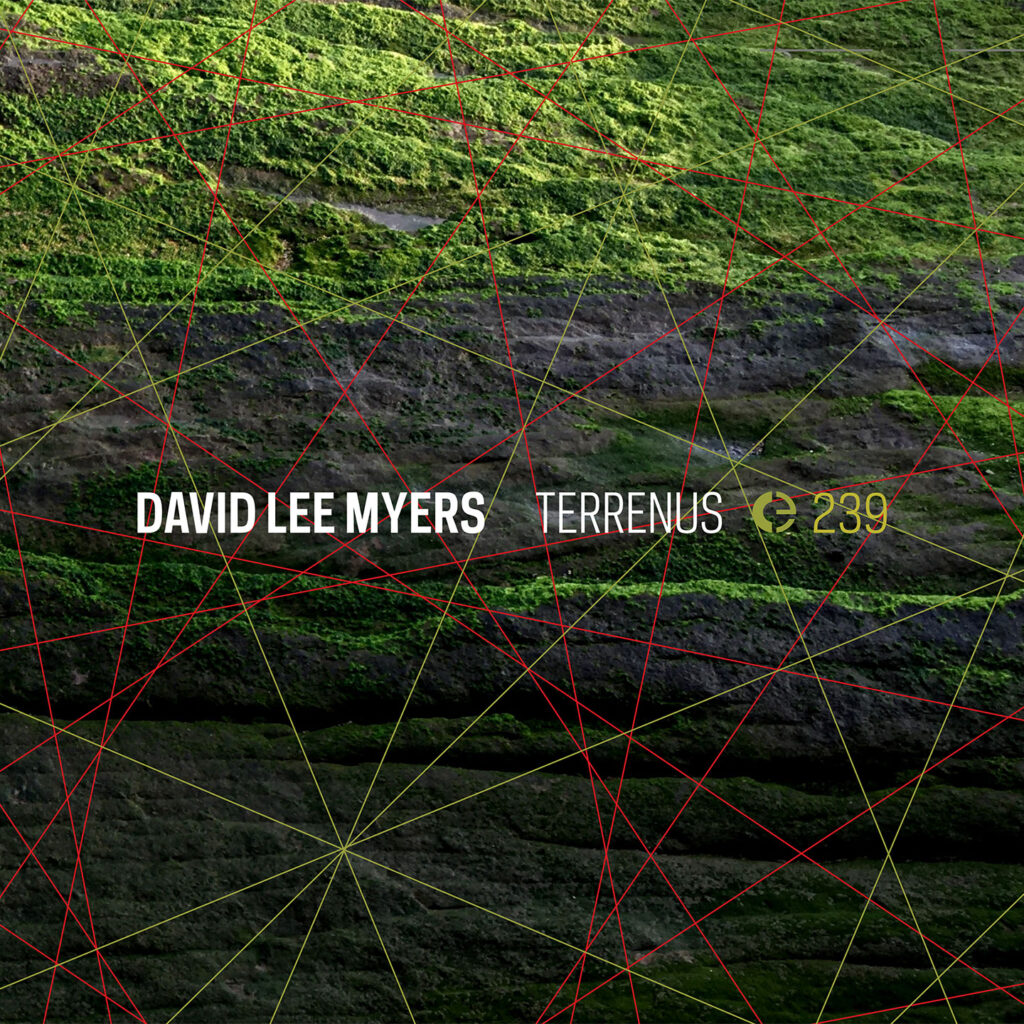
David Lee Myers has been called many things – pioneer of feedback music, sonic cartographer, stubborn alchemist of electronics – but with “Terrenus” he plants his machines firmly in the soil. If so much electronic sound gazes longingly at the stars, Myers insists on digging his fingernails into mud and moss, coaxing voices from tangled root systems. The nine pieces here feel less like tracks and more like field reports from a landscape that doesn’t exist, a kind of imaginary ecology built out of loops, delays, and self-fed circuits that breathe like compost piles alive with hidden organisms.
Unlike the piercing shrieks or metallic chatter often associated with feedback, the textures in “Terrenus” flow with a strange softness, like fog rolling over a river delta. Feedback is here less a scream than a system of weather: drifting cloud, sudden squall, sunlight scattering across wet stone. The beauty lies in its indeterminacy – processors turning back on themselves until they generate their own small climates, cycles of decay and regrowth audible in real time. Myers has long been fascinated with these recursive architectures, from his work as Arcane Device through collaborations with titans like Asmus Tietchens and Tod Dockstader, but “Terrenus” is perhaps his most grounded exploration, committed to evoking earth rather than ether.
There’s also a sly humor in calling this earth music. For all its groundedness, it never pretends to be naturalistic – there are no birds, no waterfalls, no literal imitation. Instead, it’s as if Myers is saying: here is geology reimagined by machines, here is soil filtered through delay units, here is the shimmer of lichen captured in a feedback loop. Each track feels like a hand-drawn map without compass or legend, guiding us not toward destinations but through atmospheres – uncertain borders, shifting terrain, a sense of wandering where the ground itself hums back at you.
In the end, “Terrenus” reminds us that the earth is not silent. It buzzes, it resonates, it feeds back upon itself. Myers simply builds the circuits that let us hear it. If we tend to imagine electronics as cold and detached, here they feel damp, fertile, full of breath. These are not machines speaking from the void – they are roots talking to rocks, voltage entwined with loam. And if the journey feels at times bewildering, well, so does walking through fog until the landscape itself begins to hum. Vito Camarretta
via Chain DLK
